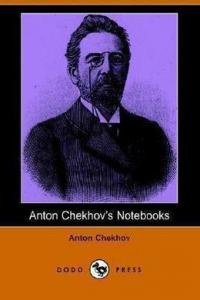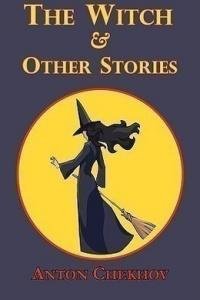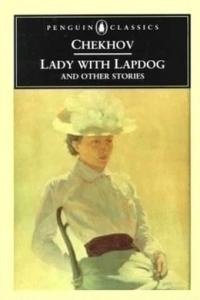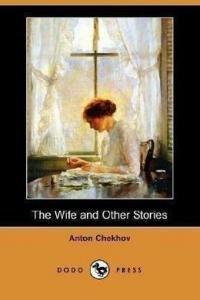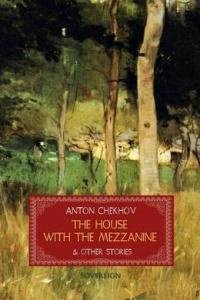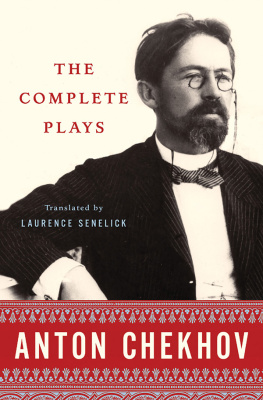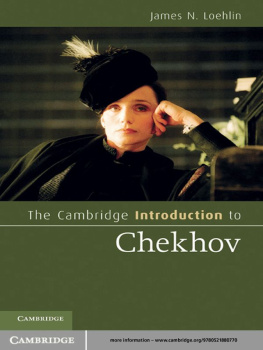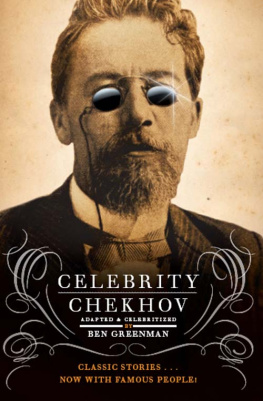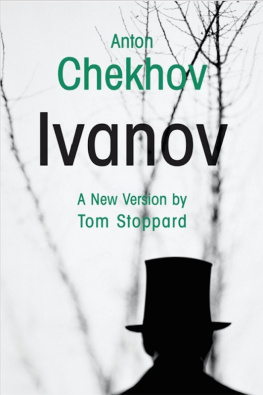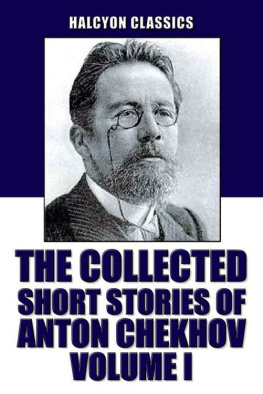Anton CHehov - Notebooks of Anton Chekhov
Here you can read online Anton CHehov - Notebooks of Anton Chekhov full text of the book (entire story) in english for free. Download pdf and epub, get meaning, cover and reviews about this ebook. year: 2014, publisher: epubBooks Classics, genre: Non-fiction. Description of the work, (preface) as well as reviews are available. Best literature library LitArk.com created for fans of good reading and offers a wide selection of genres:
Romance novel
Science fiction
Adventure
Detective
Science
History
Home and family
Prose
Art
Politics
Computer
Non-fiction
Religion
Business
Children
Humor
Choose a favorite category and find really read worthwhile books. Enjoy immersion in the world of imagination, feel the emotions of the characters or learn something new for yourself, make an fascinating discovery.
- Book:Notebooks of Anton Chekhov
- Author:
- Publisher:epubBooks Classics
- Genre:
- Year:2014
- Rating:3 / 5
- Favourites:Add to favourites
- Your mark:
- 60
- 1
- 2
- 3
- 4
- 5
Notebooks of Anton Chekhov: summary, description and annotation
We offer to read an annotation, description, summary or preface (depends on what the author of the book "Notebooks of Anton Chekhov" wrote himself). If you haven't found the necessary information about the book — write in the comments, we will try to find it.
Notebooks of Anton Chekhov — read online for free the complete book (whole text) full work
Below is the text of the book, divided by pages. System saving the place of the last page read, allows you to conveniently read the book "Notebooks of Anton Chekhov" online for free, without having to search again every time where you left off. Put a bookmark, and you can go to the page where you finished reading at any time.
Font size:
Interval:
Bookmark:
Notebooks of Anton Chekhov
Anton Chekhov
Introduction
This volume consists of notes, themes, and sketches for works which Anton Chekhov intended to write, and are characteristic of the methods of his artistic production. Among his papers was found a series of sheets in a special cover with the inscription: "Themes, thoughts, notes, and fragments." Madame L.O. KnipperChekhov, Chekhov's wife, also possesses his notebook, in which he entered separate themes for his future work, quotations which he liked, etc. If he used any material, he used to strike it out in the notebook. The significance which Chekhov attributed to this material may be judged from the fact that he recopied most of it into a special copy book.
Anton Chekhov's Diary
1896
My neighbor V.N.S. told me that his uncle FetShenshin, the famous poet, when driving through the Mokhovaia Street, would invariably let down the window of his carriage and spit at the University. He would expectorate and spit: Bah! His coachman got so used to this that every time he drove past the University, he would stop.
In January I was in Petersburg and stayed with Souvorin. I often saw Potapenko. Met Korolenko. I often went to the Maly Theatre. As Alexander [Chekhov's brother] came downstairs one day, B.V.G. simultaneously came out of the editorial office of the Novoye Vremya and said to me indignantly: "Why do you set the old man (i.e. Souvorin) against Burenin?" I have never spoken ill of the contributors to the Novoye Vremya in Souvorin's presence, although I have the deepest disrespect for the majority of them.
In February, passing through Moscow, I went to see L.N. Tolstoi. He was irritated, made stinging remarks about the dcadents, and for an hour and a half argued with B. Tchitcherin, who, I thought, talked nonsense all the time. Tatyana and Mary [Tolstoi's daughters] laid out a patience; they both wished, and asked me to pick a card out; I picked out the ace of spades separately for each of them, and that annoyed them. By accident there were two aces of spades in the pack. Both of them are extraordinarily sympathetic, and their attitude to their father is touching. The countess denounced the painter G all the evening. She too was irritated.
May 5. The sexton Ivan Nicolayevitch brought my portrait, which he has painted from a photograph. In the evening V.N.S. brought his friend N. He is director of the Foreign Department editor of a magazine and doctor of medicine. He gives the impression of being an unusually stupid person and a reptile. He said: "There's nothing more pernicious on earth than a rascally liberal paper," and told us that, apparently, the peasants whom he doctors, having got his advice and medicine free of charge, ask him for a tip. He and S. speak of the peasants with exasperation and loathing.
June 1. I was at the Vagankov Cemetery and saw the graves there of the victims of the Khodinka. [During the coronation of Nicholas II in Moscow hundreds of people were crushed to death in the Khodinka Fields.] I. Pavlovsky, the Paris correspondent of the Novoye Vremya, came with me to Melikhovo.
August 4. Opening of the school in Talezh. The peasants of Talezh, Bershov, Doubechnia and Sholkovo presented me with four loaves, an icon and two silver saltcellars. The Sholkovo peasant Postnov made a speech.
N. stayed with me from the 15th to the 18th August. He has been forbidden [by the authorities] to publish anything: he speaks contemptuously now of the younger G., who said to the new Chief of the Central Press Bureau that he was not going to sacrifice his weekly Nedelya for N.'s sake and that "We have always anticipated the wishes of the Censorship." In fine weather N. walks in goloshes, and carries an umbrella, so as not to die of sunstroke; he is afraid to wash in cold water, and complains of palpitations of the heart. From me he went on to L.N. Tolstoi.
I left Taganrog on August 24. In Rostov I had supper with a schoolfriend, L. Volkenstein, the barrister, who has already a house in town and a villa in Kislovodsk [in the Caucasus]. I was in Nakhichevanwhat a change! All the streets are lit by electric light. In Kislovodsk, at the funeral of General Safonov, I met A.I. Tchouprov [a famous economist], later I met A.N. Vesselovsky [littrateur] in the park. On the 28th I went on a hunting party with Baron Steingel, passed the night in Bermamut. It was cold with a violent wind.
2 September in Novorissisk. Steamer Alexander II. On the 3rd I arrived at Feodossia and stopped with Souvorin. I saw I.K. Aivasovsky [famous painter] who said to me: "You no longer come to see me, an old man." In his opinion I ought to have paid him a visit. On the 16th in Kharkov, I was in the theatre at the performance of "The Dangers of Intelligence." 17th at home: wonderful weather.
Vladimir Sloviov [famous philosopher] told me that he always carried an oakgall in his trouser pocket,in his opinion, it is a radical cure for piles.
October 17. Performance of my "Seagull" at the Alexandrinsky Theatre. It was not a success.
29th. I was at a meeting of the Zemstvo Council at Sezpukhovo.
On the 10th November I had a letter from A.F. Koni who says he liked my "Seagull" very much.
November 26th. A fire broke out in our house. Count S.I. Shakhovsky helped to put it out. When it was over, Sh. related that once, when a fire broke out in his house at night, he lifted a tank of water weighing 41/2 cwt. and poured the water on the flames.
December 4. For the performance [of the "Seagull"] on the 17th October see "Theatral," No. 95, page 75. It is true that I fled from the theatre, but only when the play was over. In L.'s dressingroom during two or three acts. During the intervals there came to her officials of the State Theatres in uniform, wearing their orders, P.with a Star; a handsome young official of the Department of the State Police also came to her. If a man takes up work which is alien to him, art for instance, then, since it is impossible for him to become an artist, he becomes an official. What a lot of people thus play the parasite round science, the theatre, the painting,by putting on a uniform! Likewise the man to whom life is alien, who is incapable of living, nothing else remains for him, but to become an official. The fat actresses, who were in the dressingroom, made themselves pleasant to the officialsrespectfully and flatteringly. (L. expressed her delight that P., so young, had already got the Star.) They were old, respectable housekeepers, serfwomen, whom the masters honored with their presence.
December 21. Levitan suffers from dilation of the aorta. He carries clay on his chest. He has superb studies for pictures, and a passionate thirst for life.
December 31. P.I. Seryogin, the landscape painter, came.
1897.
From January 10 to February 3 busy with the census. I am enumerator of the 16th district, and have to instruct the other (fifteen) enumerators of our Bavykin Section. They all work superbly, except the priest of the Starospassky parish and the Government official, appointed to the Zemstvo, G., (who is in charge of the census district); he is away nearly all the time in Serpukhovo, spends every evening at the Club and keeps on wiring that he is not well. All the rest of the Government officials of our district are also said to do nothing.
With such critics as we have, authors like N.S. Lyeskov and S.V. Maximov cannot be a success.
Between "there is a God" and "there is no God" lies a whole vast tract, which the really wise man crosses with great effort. A Russian knows one or other of these two extremes, and the middle tract between them does not interest him; and therefore he usually knows nothing, or very little.
The ease with which Jews change their religion is justified by many on the ground of indifference. But this is not a justification. One has to respect even one's indifference, and not change it for anything, since indifference in a decent man is also a religion.
Font size:
Interval:
Bookmark:
Similar books «Notebooks of Anton Chekhov»
Look at similar books to Notebooks of Anton Chekhov. We have selected literature similar in name and meaning in the hope of providing readers with more options to find new, interesting, not yet read works.
Discussion, reviews of the book Notebooks of Anton Chekhov and just readers' own opinions. Leave your comments, write what you think about the work, its meaning or the main characters. Specify what exactly you liked and what you didn't like, and why you think so.

